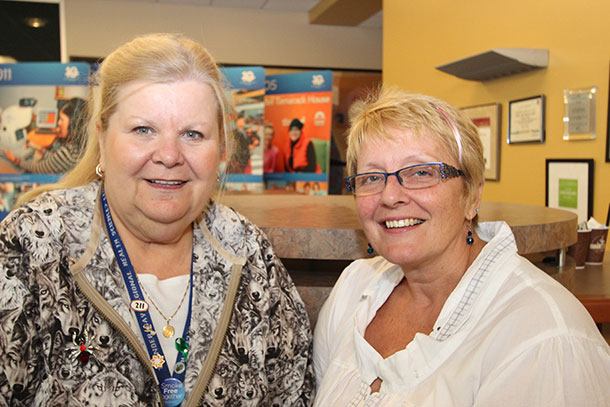

Whats Good for the Heart is Good for the Brain
THUNDER BAY – HEALTH – This year, three Ontario health organizations are joining forces during Stroke Month to raise awareness about stroke and dementia: the Ontario Stroke Network, the Alzheimer Society of Ontario and the Heart and Stroke Foundation.
The interdisciplinary team at the Northwestern Ontario Regional Stroke Network at Thunder Bay Regional Health Sciences Centre (TBRHSC) organized a number of events this month to help members of the public and healthcare providers better understand the connection between heart and brain.
The Northwestern Ontario Regional Stroke Network is one of 11 regional systems across the province whose goal is to improve access to evidence-based prevention and care in order to reduce stroke incidence, mortality and residual disability.
“The interdisciplinary stroke teams at TBRHSC and St. Joseph’s Hospital are committed to providing excellent, evidence-based and patient-centred care for the people of Northwestern Ontario,” says Caterina Kmill, Director of the Regional Stroke Program. “Stroke Month is a great opportunity to help people understand what they can do to reduce the risk of stroke. It’s also a time for stroke care providers to share the latest research findings and best practices to help us reduce the number of strokes through prevention and improve outcomes for those who do experience a stroke.”
Along with the acute care and rehabilitation teams, there is the Stroke Prevention Clinic Team. The regional Stroke Prevention Clinic (SPC) at TBRHSC includes a secretary, Nurse Practitioner, three Neurologists, and a Dietitian. The Northwestern Ontario Regional Stroke Network also provides additional funding to four community SPCs in Marathon, Fort Frances, Sioux Lookout, and Kenora, which are designed to follow up with patients who have received stroke care at TBRHSC. Individuals may be referred by an Emergency physician, family physician, specialist or nurse practitioner.
On June 24, frontline clinical care providers and professional practice leaders at TBRHSC had the opportunity to participate via videoconference in a presentation about the relationship between stroke and dementia by Dr. Sandra Black, Director of the Brain Sciences Research Program at Sunnybrook Research Institute in Toronto.
Sarah Pudney-Gillin, Public Education Coordinator at the Alzheimer Society of Thunder Bay, agrees that it makes sense for the organizations to partner during Stroke Month to raise awareness about the shared risk factors and prevention. “What’s good for the heart is good for the brain,” says Pudney-Gillin.
“No matter your age or experience with stroke or dementia, it’s never too late to start socializing, eating a heart-healthy diet and exercising regularly. It can have a great impact on one’s quality of life and it may slow the progression of the illness.”
Minds in Motion is a new program from the Alzheimer Society of Thunder Bay designed to help people showing signs of dementia and their care partners improve balance, mobility, flexibility, and alertness.
Bob, who has just finished the eight-week program with his cousin who has early onset cognitive impairment, says it is a great experience for both the patient and the caregiver. “From the first session, she was encouraged by the social impact and understanding. The coordinators and volunteers with the Minds in Motion program have established a spirit of cooperation, hope and understanding, not only for the individual who is experiencing some loss of cognitive function, but also for the caregiver.”





